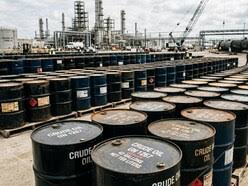Alok Kumar, Founder and Innovator, Saarthi GreenTech, offers his expert insights on the pivotal role of green logistics in addressing climate change. Kumar emphasises the critical need for integrating green practices within supply chains to mitigate environmental impact.

Continual research and development efforts are propelling the efficiency of green logistics forward
As the logistics industry spearheads economic development, it grapples with the urgent challenge of curbing its substantial carbon footprint. Responsible for roughly 24 percent of global carbon emissions, logistics has emerged as a focal point in the battle against climate change. Embracing sustainable practices has become imperative as the industry aims to establish green logistics as the new norm for eco-friendly transportation and supply chain management.
Central to green logistics is a commitment to seamlessly integrate eco-friendly practices throughout the supply chain. From sourcing to delivery, companies are embracing alternative fuels, efficient transportation modes, and optimized packaging processes. Carbon offsets play a pivotal role, allowing firms to balance their carbon emissions by investing in projects that absorb CO2, inching closer to achieving net-zero emissions.
Reforestation initiatives
Reforestation projects, spanning large areas with newly planted trees, not only absorb CO2 but also rejuvenate ecosystems and promote biodiversity. Investing in green highways—roads lined with trees—has emerged as a promising strategy within the logistics sector. These green corridors not only capture carbon but also enhance aesthetics, reduce soil erosion, and mitigate noise pollution, contributing significantly to environmental preservation.
Indian policy
In India, the ‘Green Highways (Plantation, Transplantation, Beautification, & Maintenance) Policy 2015’ underscores the nation’s commitment to developing eco-friendly national highways. This policy not only supports carbon sequestration but also aims to preserve soil moisture and enhance groundwater levels, aligning infrastructure development with ecological conservation efforts.
Tech innovations
Technological innovations are driving the transition towards greener logistics. Electric vehicles (EVs), once considered niche, are now becoming mainstream in logistics fleets, thanks to investments from industry giants and advancements in EV technology. Additionally, alternative fuels such as biofuels and hydrogen are gaining traction for their potential to significantly reduce carbon emissions, with India’s National Hydrogen Mission targeting ambitious production goals by 2030.
Research
Continual research and development efforts are propelling the efficiency of green logistics forward. Studies highlight the critical role of green finance and the potential of LNG trucks in emission reduction. Moreover, the adoption of solar technology and the proliferation of electric vehicles are rapidly transitioning from concepts to mainstream solutions, driving the logistics sector towards emission minimisation and sustainability.
Future prospects
Infrastructure developments, such as the expansion of highways, are crucial for reducing emissions and enhancing logistical efficiency. Combined with AI integration, which optimises route planning and streamlines supply chains, these enhancements contribute to operational efficiencies and further carbon reductions.
Although achieving carbon neutrality remains a formidable challenge, the urgency cannot be overstated amid escalating climate change concerns. The transformation towards green logistics necessitates collective efforts from governments, businesses, and consumers. As the sector continues to innovate and adapt, the vision of a carbon-neutral supply chain becomes not only attainable but essential for safeguarding our planet and ensuring the prosperity of future generations.











